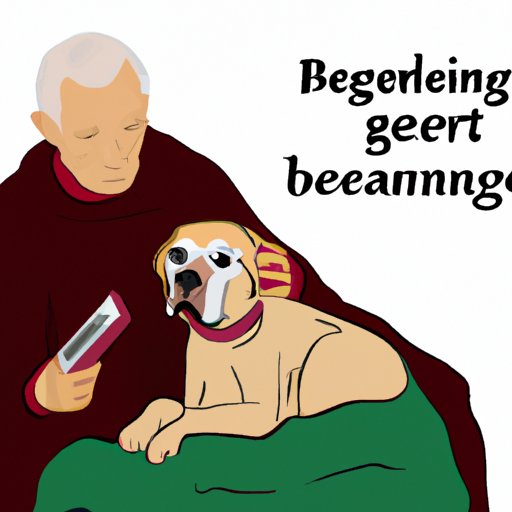As a caregiver, you’ve likely noticed that your older dog shakes more often than he used to. You may wonder if it’s a normal part of aging or a sign of something more serious. This comprehensive guide will explain why older dogs often shake and what you can do about it.
1. Understanding the Aging Process in Dogs
As dogs age, their bodies undergo various changes. Their metabolism slows down, their eyesight and hearing may decline, and they may experience aches and pains in their joints. These changes can lead to behaviors like shaking.
It’s important to remember that shaking in older dogs isn’t always a cause for concern. It could simply be a result of the aging process. However, persistent or severe shaking could indicate a medical issue that requires veterinary attention.
Table 1: Aging changes in dogs
| Ageing Change | Description |
|---|---|
| Slower Metabolism | Leads to weight gain and lower energy levels. |
| Declining Eyesight and Hearing | Can cause confusion or anxiety, which may lead to shaking. |
| Joint Pain | Arthritis is common in older dogs and can cause shaking. |
2. Common Reasons Older Dogs Shake
There are several reasons why your elderly dog might be shaking, including:
- Cold: Just like humans, dogs can shiver when they’re cold. As dogs age, they may become more susceptible to cold temperatures.
- Anxiety or Fear: Dogs often shake when they’re anxious or scared. This could be a response to a thunderstorm, fireworks, or a new environment.
- Pain or Discomfort: If your dog is in pain, he might shake. This can be caused by arthritis, dental problems, or other health issues.
- Neurological Problems: Certain neurological conditions, such as Canine Cognitive Dysfunction (CCD), can cause shaking in older dogs.
3. When to Seek Veterinary Attention
If your dog’s shaking is accompanied by other symptoms, it’s time to consult a vet. These symptoms can include:
- Loss of appetite
- Difficulty walking
- Unusual aggression or fear
- Excessive sleepiness or lethargy
If you notice any of these signs, schedule an appointment with your vet as soon as possible.
4. How to Help Your Shaking Dog
There are several ways you can help your older dog if he’s shaking:
- Provide a Warm Environment: Keep your dog warm by providing a cozy bed and blankets.
- Reduce Anxiety: Use calming techniques, such as music therapy, and consider talking to your vet about anti-anxiety medications.
- Manage Pain: If your dog is in pain, talk to your vet about pain management options. This could include medication, physical therapy, or changes to his diet.
5. Frequently Asked Questions (FAQs)
Why is my old dog shaking?
There are several reasons why your dog might be shaking, including cold, anxiety, pain, or neurological problems.
When should I be worried about my dog shaking?
If your dog’s shaking is persistent, severe, or accompanied by other symptoms such as loss of appetite or difficulty walking, consult a vet.
How can I help my shaking dog?
You can help your shaking dog by providing a warm environment, reducing anxiety, and managing pain.
Remember, your older dog counts on you for care and comfort. Understanding why he shakes and how to help him can enhance his golden years and give you peace of mind.



